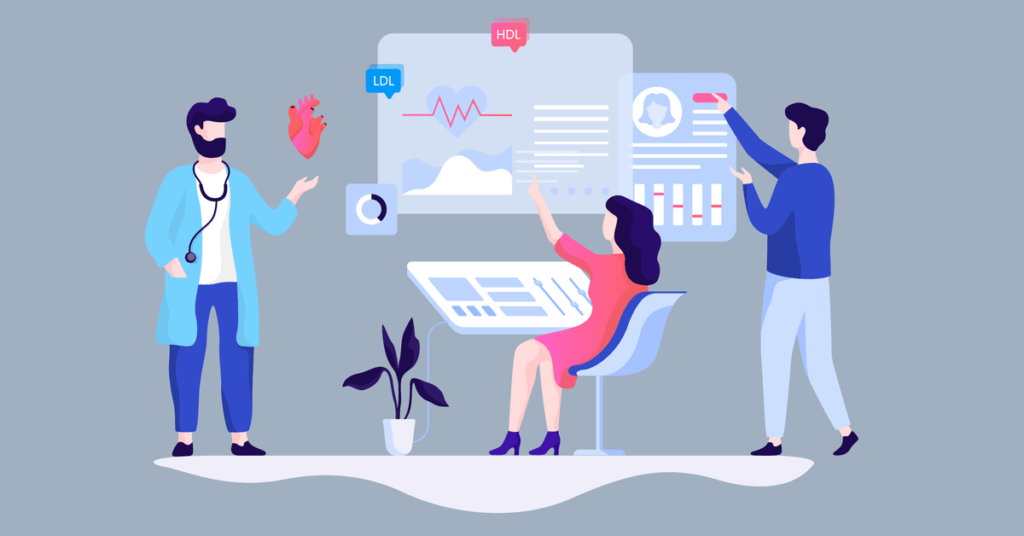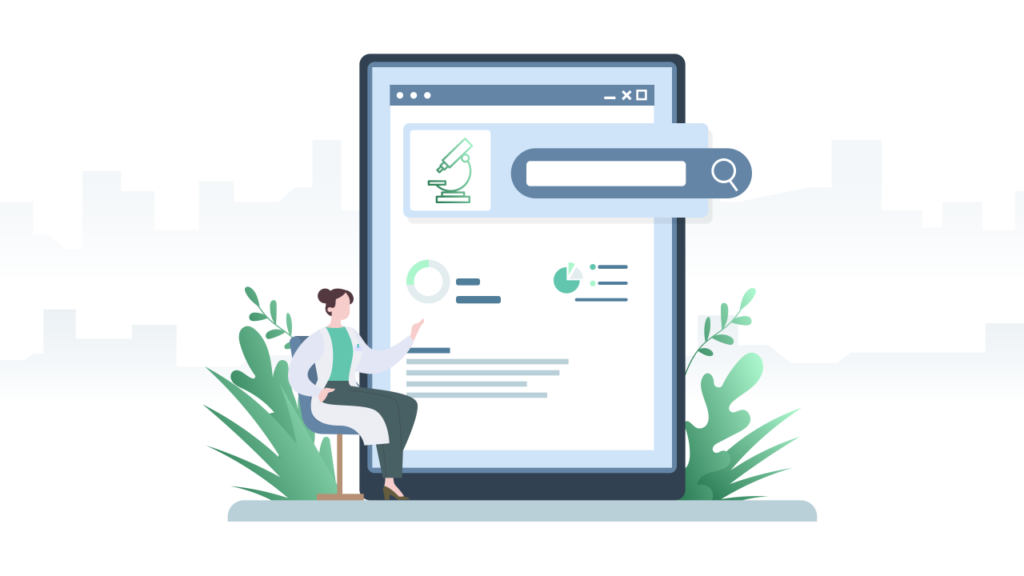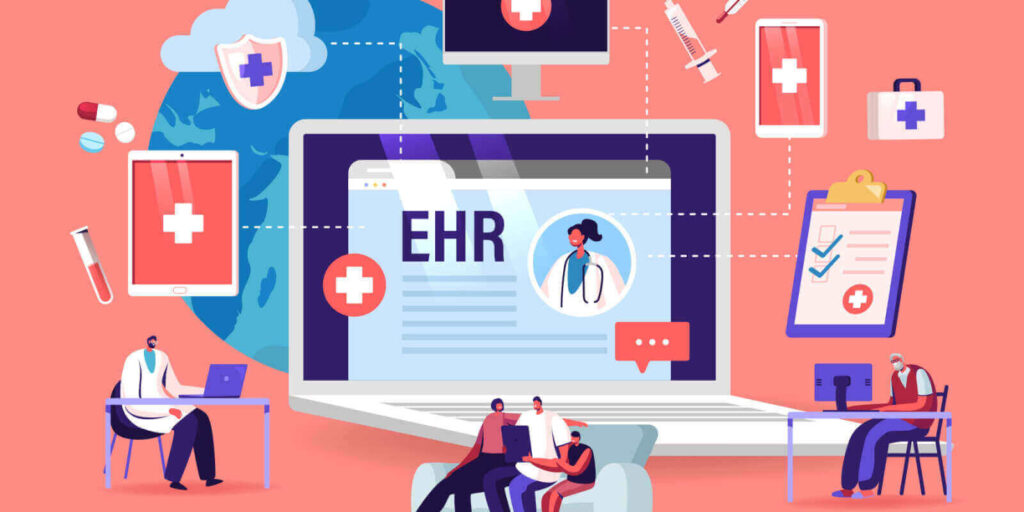Blog
How Digital Health Records Enhance Personal Care Management
In the rapidly evolving healthcare landscape, digital health records (DHRs) have become a cornerstone of personal care management. These systems, which include Electronic Health Records (EHRs) and Personal Health Records (PHRs), allow for seamless access, storage, and sharing of medical information. By providing individuals and healthcare providers with a centralized platform for health data, digital health records enhance care coordination, improve patient outcomes, and empower individuals to take charge of their health.
This article explores how digital health records enhance personal care management, their benefits, and the challenges that come with widespread adoption.
1. What Are Digital Health Records?
Digital health records are electronic systems designed to collect, store, and manage an individual’s health information. They serve as digital versions of traditional paper records but come with added benefits like easy access, real-time updates, and data-sharing capabilities.

Types of Digital Health Records:
- Electronic Health Records (EHRs):
- Managed by healthcare providers.
- Include data such as medical history, diagnoses, medications, lab results, and treatment plans.
- Personal Health Records (PHRs):
- Managed by individuals.
- Allow patients to compile and share their health data with providers.
2. How Digital Health Records Enhance Personal Care Management
1. Centralized Health Information
Digital health records consolidate an individual’s medical data into a single, easily accessible platform.
- Benefit: Eliminates the need to maintain paper records or visit multiple facilities for information.
- Impact: Patients and providers can quickly review a comprehensive health history, improving the accuracy of diagnoses and treatment plans.
2. Improved Care Coordination
EHRs allow multiple healthcare providers to access the same data, ensuring continuity of care.
- Benefit: Reduces the risk of medical errors and redundant tests.
- Impact: Enhances collaboration between specialists, primary care doctors, and other healthcare professionals.
3. Empowering Patients with Knowledge
PHRs provide patients with direct access to their health information, including lab results, immunization records, and medication lists.
- Benefit: Promotes health literacy and encourages proactive care management.
- Impact: Patients become active participants in their care, leading to better compliance with treatment plans.
4. Personalized Care Plans
Digital health records enable providers to create tailored care plans based on a patient’s unique health data.
- Benefit: Supports personalized medicine by identifying risk factors, allergies, and genetic predispositions.
- Impact: Improves treatment outcomes by addressing individual needs and preferences.
5. Real-Time Updates and Alerts
Digital systems update in real-time, ensuring that patients and providers always have access to the latest health information.
- Benefit: Reduces delays in care due to outdated records.
- Impact: Timely alerts for critical lab results, upcoming appointments, or medication refills enhance care efficiency.
6. Remote Monitoring and Telehealth Integration
Many digital health records integrate with wearable devices and telehealth platforms.
- Benefit: Allows providers to monitor chronic conditions remotely, such as blood pressure, glucose levels, or heart rate.
- Impact: Enables early intervention for potential health issues and reduces hospital visits.
7. Medication Management

DHRs provide detailed medication histories and enable e-prescribing.
- Benefit: Reduces the risk of adverse drug interactions and ensures patients adhere to prescribed regimens.
- Impact: Simplifies the process of managing multiple medications, particularly for elderly patients.
8. Enhanced Preventive Care
EHRs can track screenings, vaccinations, and routine check-ups.
- Benefit: Sends reminders for preventive care services like mammograms or flu shots.
- Impact: Encourages regular health maintenance, reducing the likelihood of severe illnesses.
3. Benefits of Digital Health Records for Personal Care Management
1. Accessibility and Convenience
- Access health records anytime, anywhere via secure online portals.
- Facilitates care when traveling or switching healthcare providers.
2. Data-Driven Insights
- Aggregates data to identify trends and inform decision-making.
- Offers predictive analytics for early disease detection.
3. Cost Savings
- Reduces unnecessary tests and hospitalizations through improved care coordination.
- Lowers administrative costs by automating record-keeping and billing.
4. Enhanced Communication
- Enables secure messaging between patients and providers.
- Improves understanding of treatment plans through clear documentation.
5. Support for Chronic Disease Management
- Provides a comprehensive overview of conditions like diabetes or hypertension.
- Facilitates tracking of symptoms, lab results, and medication effectiveness.
4. Challenges in Implementing Digital Health Records
1. Data Privacy and Security:
- Concerns about breaches or unauthorized access to sensitive information.
- Solution: Use advanced encryption, multi-factor authentication, and regular audits.
2. Interoperability Issues:
- Difficulty integrating data across different EHR systems.
- Solution: Adoption of standardized data formats like HL7 and FHIR for seamless sharing.
3. Learning Curve for Users:
- Patients and providers may struggle with new technology.
- Solution: Provide training and user-friendly interfaces.
4. Cost of Implementation:
- High initial costs for hardware, software, and staff training.
- Solution: Leverage government incentives and phased rollouts.
5. Future Trends in Digital Health Records
1. AI and Machine Learning Integration
- AI will analyze EHR data to predict risks and suggest treatments.
- Example: Early detection of conditions like sepsis or cancer.
2. Blockchain for Enhanced Security
- Blockchain technology will ensure data integrity and secure sharing of health records.
3. Expanded Wearable Integration
- More devices, like smartwatches, will sync with EHRs for real-time health monitoring.
4. Global Health Record Networks
- International data-sharing initiatives will enable better care for travelers and expats.
6. Practical Tips for Using Digital Health Records
- Regularly Update Your PHR: Ensure your data is accurate and up-to-date.
- Ask for Access: Request login credentials for your healthcare provider’s patient portal.
- Review Records Frequently: Look for errors or omissions and report them to your provider.
- Use Secure Devices: Access your records only from trusted, password-protected devices.
- Integrate Wearables: Sync your fitness tracker or smart health device for comprehensive monitoring.
Conclusion
Digital health records are transforming personal care management by making health data more accessible, actionable, and accurate. By streamlining care coordination, empowering patients, and enabling personalized treatment plans, these systems enhance both the quality and efficiency of healthcare.
While challenges like data security and interoperability remain, the future of digital health records is bright, with innovations like AI and wearable integration poised to take personal care management to the next level. Embracing these tools today can lead to healthier, more informed choices tomorrow.

